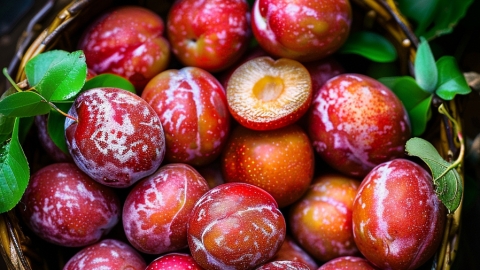Can patients with diabetes eat plums?
Generally, diabetic patients can eat plums, but it is not recommended to consume them in large quantities. Detailed analysis is as follows:

Plums have a relatively low glycemic index, and moderate consumption generally does not cause significant fluctuations in blood sugar levels. Moreover, plums are rich in dietary fiber, which can delay the absorption of sugar from food, helping to control post-meal blood glucose. At the same time, plums also contain nutrients such as vitamin C and potassium. Vitamin C enhances immune function, while potassium plays a role in regulating electrolyte balance in the body. Additionally, the sweet and sour taste of plums can satisfy diabetics' craving for sweetness without significantly increasing blood sugar levels, thereby improving poor appetite caused by dietary restrictions to a certain extent.
Diabetic patients should strictly control the amount of plums consumed, eating only 1 or 2 at a time, and include their calories within the total daily caloric intake to avoid exceeding the total calorie limit. Also, it is best to consume plums between meals rather than immediately after meals to prevent a spike in blood sugar. Furthermore, fresh and ripe plums should be selected, avoiding processed plum products such as dried plums, which may contain added sugars that are detrimental to blood sugar control.









